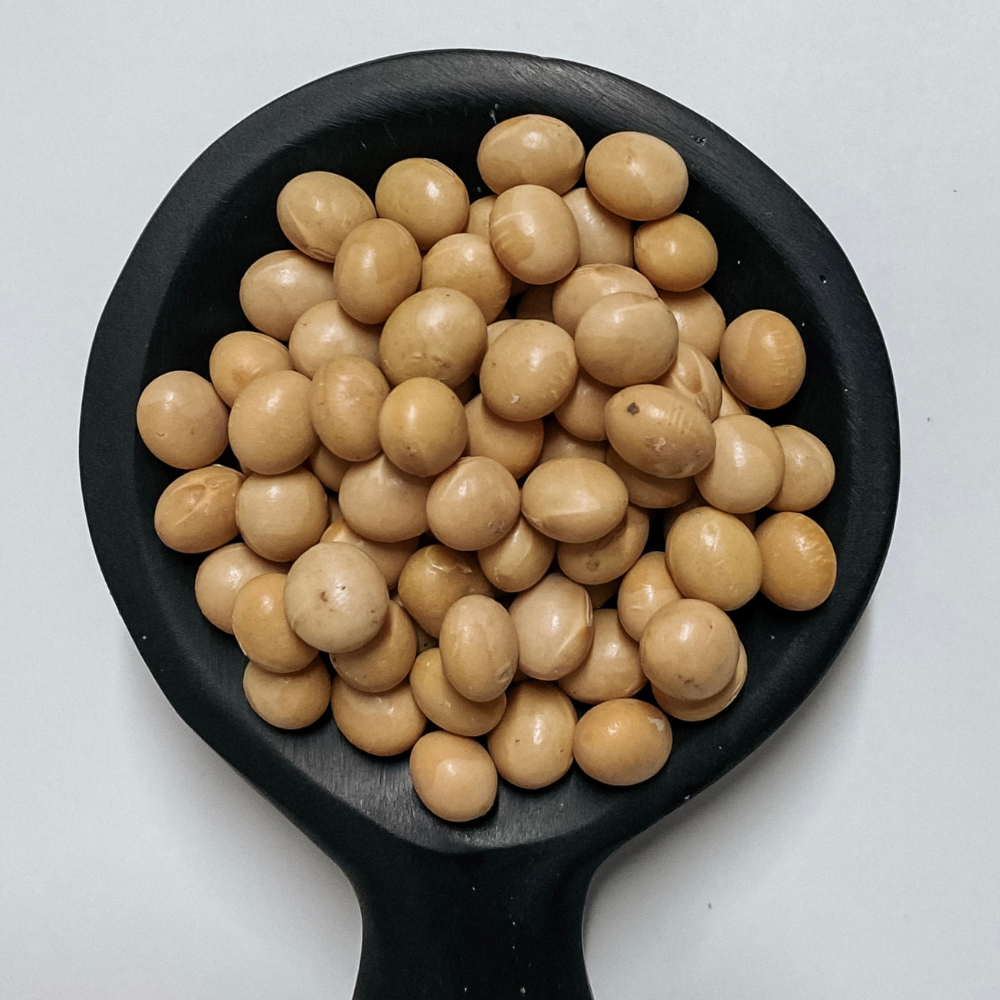Soltree Wholefoods
Soya Beans (Soybeans) Organic
Soya Beans (Soybeans) Organic
Couldn't load pickup availability
Organic Soya Beans, also known as soybeans, are a highly nutritious legume, revered for their high protein content and versatility in both culinary and health applications. These beans are a rich source of plant-based protein, healthy fats, fibre, and a range of essential vitamins and minerals. Whether used as a base ingredient in plant-based foods or enjoyed on their own, organic soya beans are a staple for those seeking a wholesome, protein-packed food option.
How to Use:
- Cooking: Organic soya beans can be cooked and added to soups, stews, curries, or salads for a protein boost.
- Homemade Soy Milk: Soak and blend soya beans with water to create fresh, homemade soy milk—a nutritious alternative to dairy.
- Tofu and Tempeh: Use soya beans as the main ingredient to make homemade tofu or tempeh, popular plant-based protein sources in vegan and vegetarian diets.
- Edamame: Cook soya beans slightly underdone and season them with sea salt for a delicious, nutrient-rich snack similar to edamame.
- Fermented Foods: Soya beans can be used to make fermented foods like miso and natto, known for their probiotic benefits and savoury flavor.
- Flour and Meal: Grind cooked or dried soya beans into flour for use in gluten-free baking or as a protein-rich thickener for sauces and soups.
Benefits:
- Rich in Plant-Based Protein: Organic soya beans are one of the highest plant-based sources of protein, making them an excellent choice for vegans, vegetarians, and those looking to reduce meat consumption while maintaining muscle health.
- Supports Heart Health: Soya beans are high in healthy fats, particularly polyunsaturated fats, which help maintain healthy cholesterol levels and reduce the risk of heart disease.
- Complete Protein Source: Soya beans contain all nine essential amino acids, making them a complete protein, ideal for muscle repair, growth, and overall body function.
- High in Fibre: These beans are packed with dietary fibre, which supports digestive health, helps regulate blood sugar, and promotes feelings of fullness.
- Rich in Antioxidants: Soya beans are a good source of antioxidants like isoflavones, which help protect the body from oxidative stress and inflammation.
- Bone Health: The calcium, magnesium, and phosphorus in soya beans support strong bones and help reduce the risk of osteoporosis.
- Hormonal Balance: The phytoestrogens in soya beans can help regulate hormonal balance, particularly in women during menopause, by mimicking oestrogen in the body.
How to Prepare:
- Soaking: Before cooking, soak organic soya beans in water for 6-8 hours or overnight to reduce cooking time and improve digestibility.
- Cooking: Drain the soaked beans, place them in a pot, and cover with fresh water. Bring to a boil, then simmer for 1-2 hours until tender. Use the cooked beans in soups, stews, or salads, or blend into dips and spreads.
- Soy Milk: To make soy milk, blend soaked soya beans with water, strain through a cheesecloth, and boil the liquid for 15-20 minutes. Sweeten or flavor as desired.
- Tofu: After making soy milk, use the liquid to create tofu by adding a coagulant (like calcium sulfate) and pressing the curds into a block.
Storage Tips:
- Dried Beans: Store dried organic soya beans in an airtight container in a cool, dry place for up to a year.
- Cooked Beans: Once cooked, soya beans can be refrigerated for up to 5 days or frozen for up to 6 months for later use in meals and recipes.
Organic soya beans are a powerhouse of nutrition, offering a versatile and protein-rich ingredient that fits seamlessly into a variety of dishes. From homemade soy milk and tofu to hearty stews and fresh salads, these beans provide a plant-based protein option that is both delicious and health-boosting. Whether you're a vegetarian, vegan, or simply looking to include more nutrient-dense foods in your diet, organic soya beans are a fantastic choice.
Share


